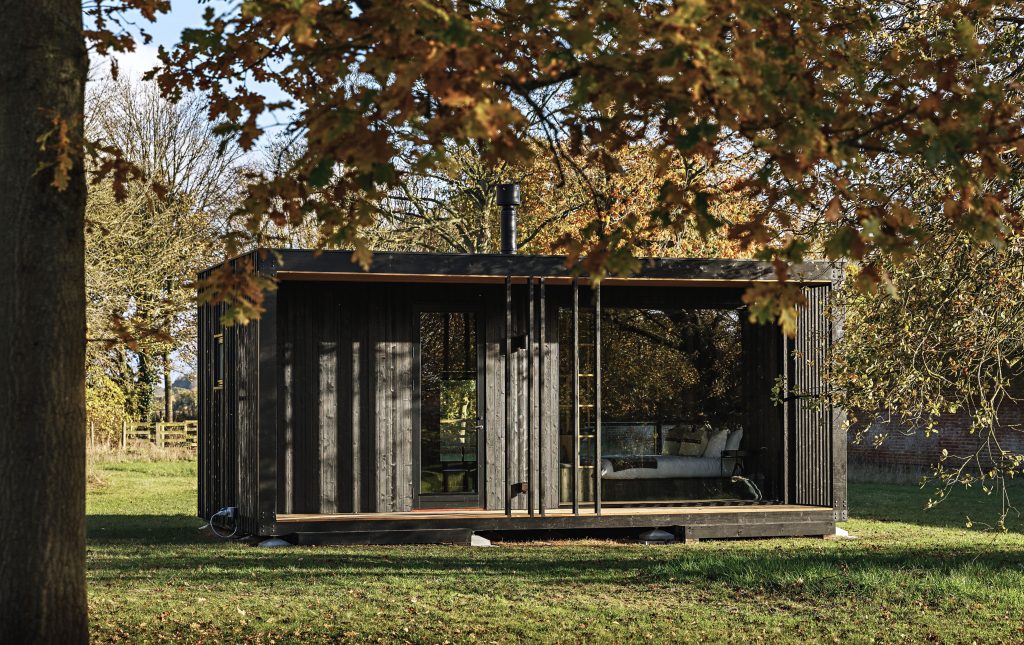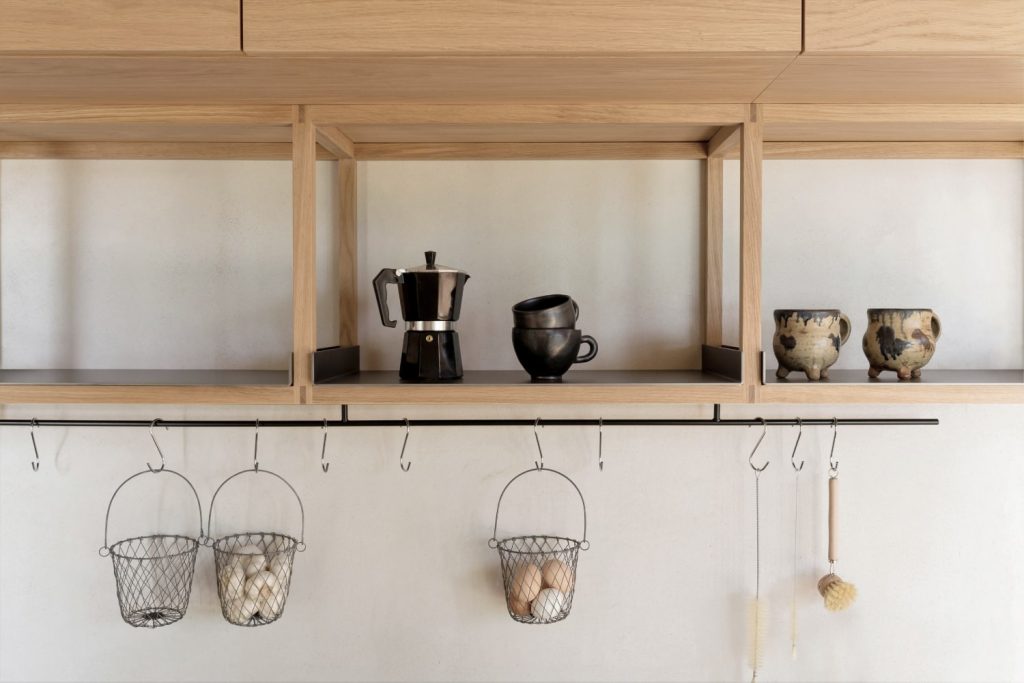
Living a sustainable life still requires constant efforts and awareness. Mindfulness of our actions and their impact is the key, says Paulius, co-founder of Konga Cph and the lead of prefab Konga cabins.
Today, we often chase after more to find fulfilment here and now. But on our way to content being, we rarely stop to think and look around us, don’t we? Notice how many resources are available today and how overwhelming it sometimes is to navigate all the choices. Simply because there are too many of them.
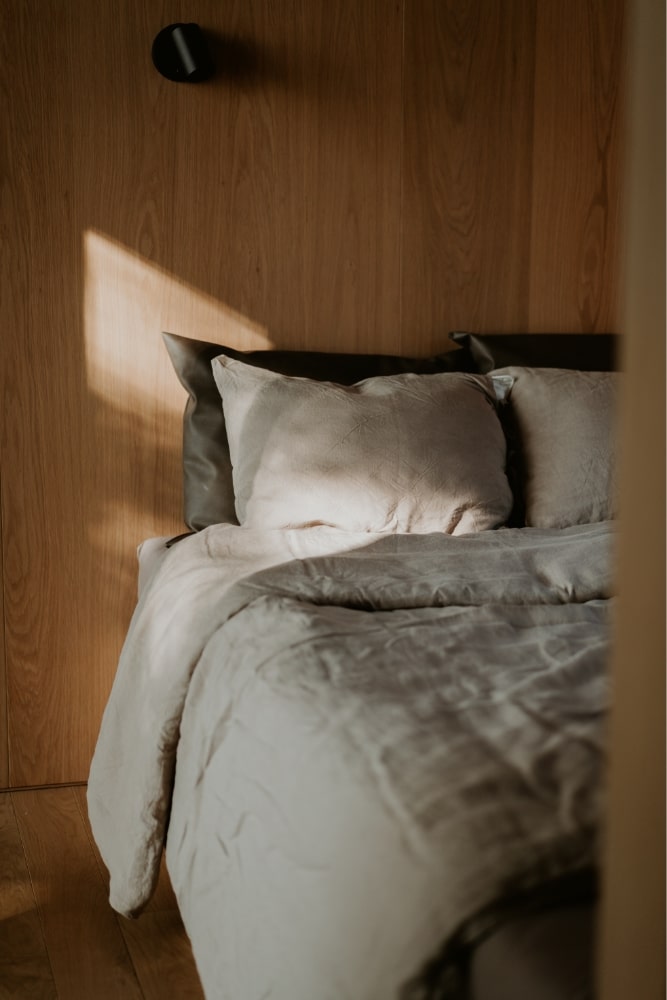
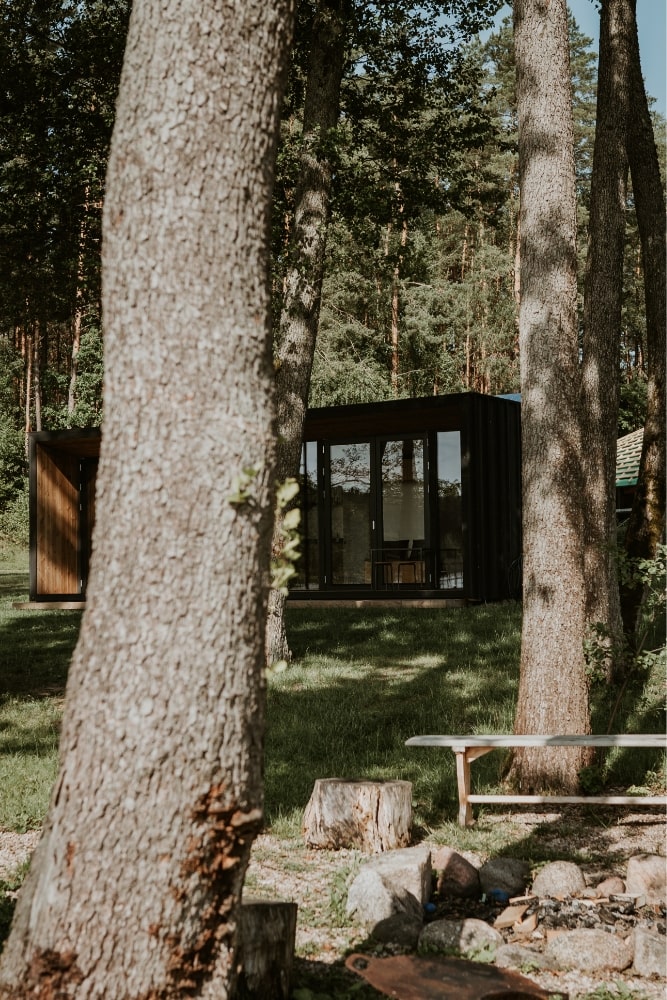
Start of Konga Cph kitchens and off-grid cabins
I have a strong connection to nature myself. And now I’m instantly recalling Sean Penn’s movie ‘Into the wild.’ Carrying on this sentimental note, I’ve been nurturing this bond with nature since childhood. I vividly remember cranberry or mushroom picking in the stunning forests of Dzukija. It’s still an absolute refreshment for me. Although I love city life and all this urban rush, I’ve always longed for nature. And the more profound this longing got, the more the idea of creating a modular off-grid cabin put roots in my heart. A heart-warming and sustainable dwelling in deep nature. The place that invites us to ‘escape the ordinary.’ And at this point, I had it all to make it real.
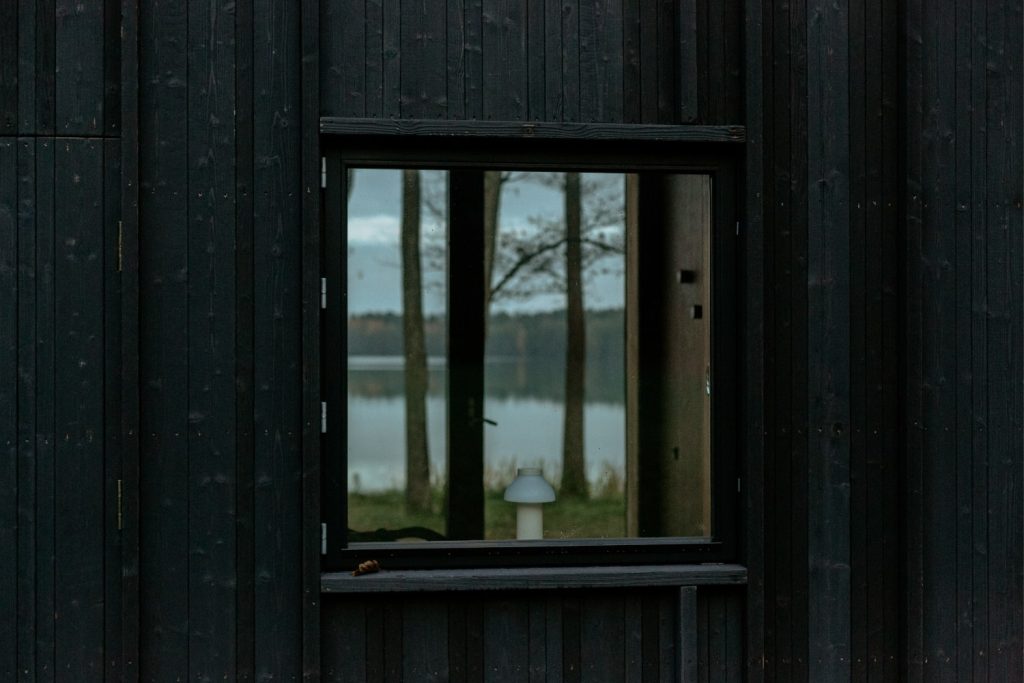
I’ve been in the furniture manufacturing industry, particularly kitchens, for over 15 years now. During that time, we manufactured kitchens of different styles, always following the clients’ needs and wishes. I had knowledge, experience, and a desire to act. So, backed by extensive professional experience, we combined our own craftsmanship and design ideas to life.
Self-sufficient tiny house by Mette Fredskild
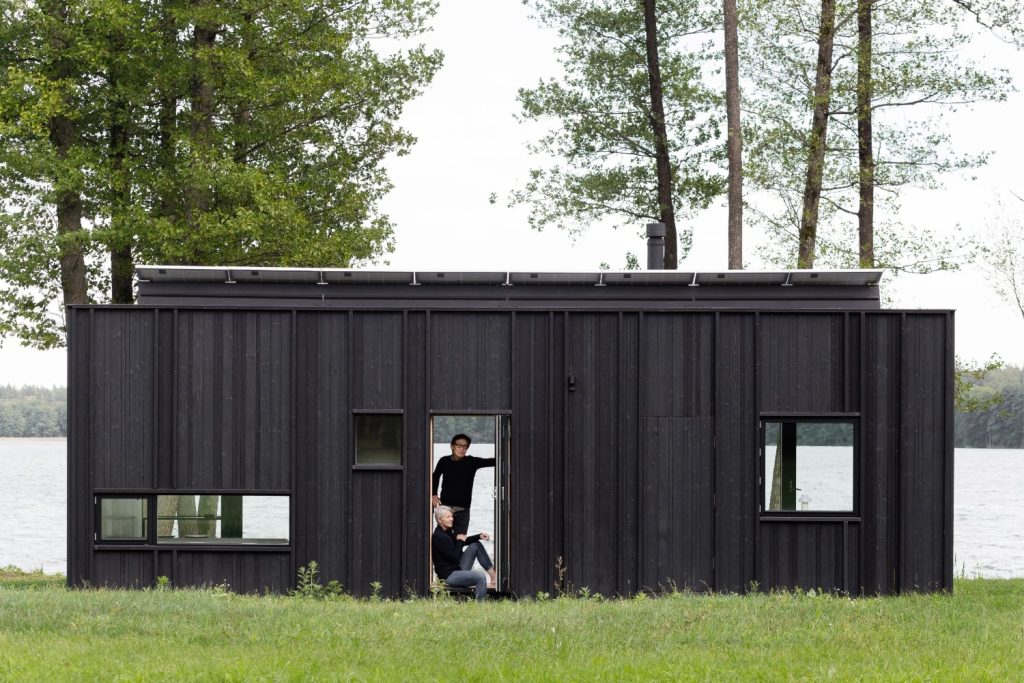
Before we even started developing Konga off-grid cabin, we spent a lot of time discussing what sustainability actually is. How do people understand this? How can a business be sustainable? How can we be better in the furniture sector? And self-sufficient tiny house (off-grid version) was a starting point. But today, it’s no longer enough.
The core material of the Konga cabin – is wood. Mette kept this for the exterior as well as the interior to keep consistency and the highest standards on top. And we personally challenged ourselves to create sustainable interior details where offcuts would be reused in a modern and stylish way.
Today also, we are both proud of designing a 25x25 shelving system manufactured using wood offcuts. And the same zero-waste 25x25 upper shelves were nicely installed into the Konga off-grid cabin.
On the way to 'Konga mini' backyard office
